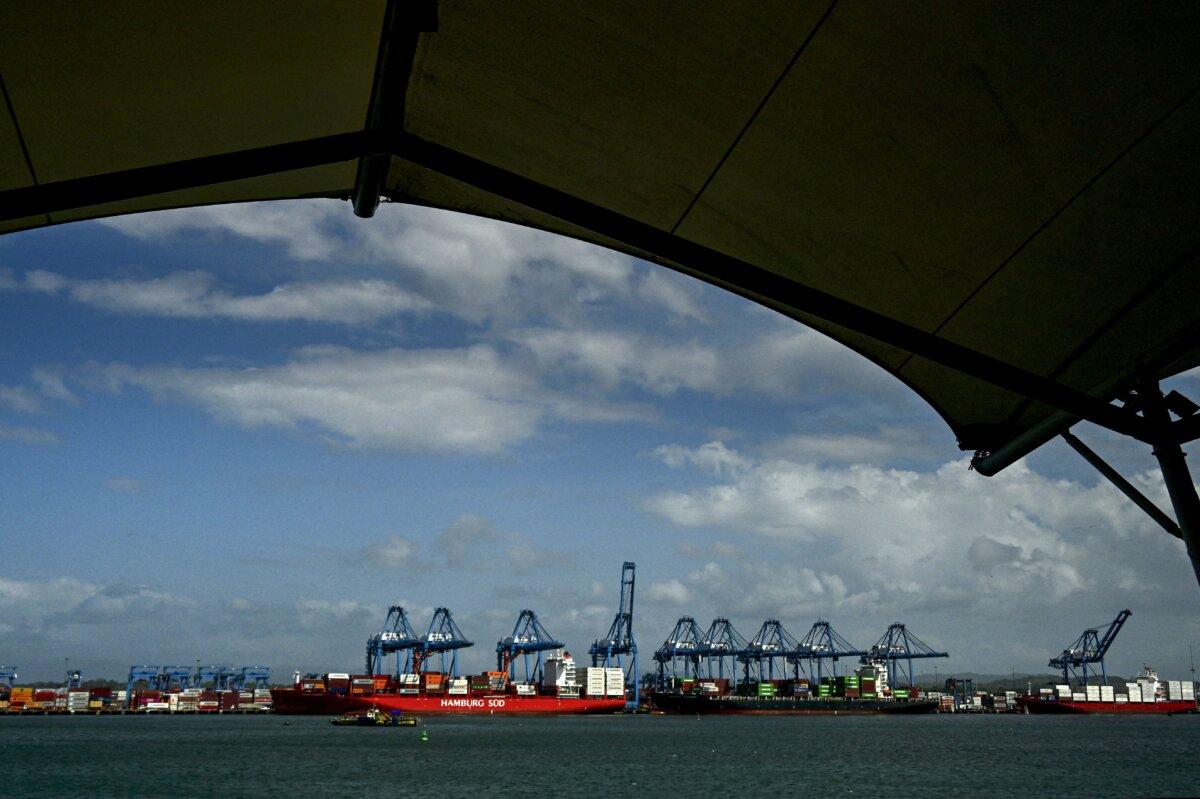Analysis: In Attacking Panama Port Deal, CCP Sends a Message to Investors
Xi Jinping embarked on a charm offensive ahead of Trump’s reciprocal tariffs but political pressure on a Hong Kong company could derail those efforts.
News Analysis
Chinese leaders have held several high-profile meetings with prominent entrepreneurs in recent weeks, in an attempt to encourage confidence among investors. But at the same time, China’s regulators and state media have ratcheted up pressure against a Hong Kong company over its asset sales in the Panama Canal and other ports around the world.
For China observers, the message is clear: under China’s ruling Chinese Communist Party (CCP), private companies inevitably must prioritize political loyalty over their own business interests, whether they’re operating in mainland China or Hong Kong.
“On the surface, private businesses may appear independent but that’s not the case in reality,” Lin, who now lives in Australia, told The Epoch Times. “When a company becomes a target of the government’s wrath, its decision-making power can be handed over to the state.”
Lin draws parallels to the CCP’s nationalization of private enterprise in the 1950s during its brutal anti-rightist political campaign against Chinese capitalists and landlords. It wasn’t until the late 1970s, as China’s economy teetered on the brink of collapse, that Beijing began easing its control over the private sector, introducing some liberalizing market reforms.
Beijing’s Control in Hong Kong
The attacks by local media against CK Hutchison stem directly from Beijing’s directive, China expert and contributor to The Epoch Times Alexander Liao previously told The Epoch Times, citing a source close to the party’s top echelon. Liao said that Beijing was displeased by the port sales that attracted applause from U.S. President Donald Trump during his Congressional speech in March.

A cargo ship of the Hamburg Sud company is pictured at the Colon Port in Colon, Panama, on Jan. 29, 2025. Martine Bernetti/AFP via Getty Images
David Huang, a U.S.-based researcher focusing on China trade policy, suggests that the massive divestment by a Hong Kong company will signal a shift in Beijing’s strategy toward business in the former British colony.
“In the past, Beijing’s regulators rarely intervened with Hong Kong businesses, opting instead for subtle warnings through pro-Beijing media. This time, the market regulator’s direct involvement in the anti-monopoly review shows that Beijing views Hong Kong firms with the same skepticism as those from the United States,” Huang told The Epoch Times.
Xi’s Charm Offensive
As the CCP tightens controling regulations amid an economic slowdown, global investors have already started to rethink their strategies in the nation. Official figures show that foreign investment in the nation tumbled to a three-decade low by one measure in 2024.
CCP leaders have intensified their charm offensive toward China’s private sector and Western companies, especially as it faces additional tariffs from Washington.

China’s leader Xi Jinping (C) speaks during a meeting with a group of foreign executives at the Great Hall of the People in Beijing on March 28, 2025. Adek Berry/AFP via Getty Images
Yuan Bin, a China current affairs commentator, pointed out the contradictions in the CCP’s approach: while Xi extends an olive branch to entrepreneurs, he simultaneously takes a hard stance against prominent figures like Li Ka-shing.
“Actually, there is no contradiction. Xi Jinping’s friendliness toward private enterprises and his emphasis on the private economy’s potential do not imply a change in the CCP’s approach towards private enterprises,” he wrote.
“To put it bluntly,” he continued, “private enterprises must operate under the party’s directives: they must do what the party wants, in the manner the party dictates.”
Yi Ru contributed to this report.
Views expressed in this article are opinions of the author and do not necessarily reflect the views of The Epoch Times.





